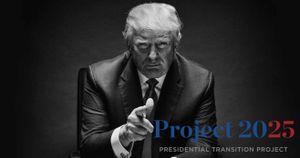Former President Jimmy Carter, who passed away on December 29, 2023, at the age of 100, will forever be remembered not only for his time as the 39th president of the United States but also for his monumental impact on humanitarian efforts across the globe. Carter's death marks the end of an era as he was the longest-living president in U.S. history.
President Joe Biden, among many others, paid tribute to Carter during the mourning period leading up to his state funeral on January 9, 2024. Biden expressed his admiration with heartfelt words: "Mr. President, I admire you so darn much. Your hopeful vision of our country, your commitment to a more equitable world, and your unwavering belief in human goodness continues to be a guiding light for all of us." This was released just days before Carter turned 100, making it particularly poignant as it was the first birthday he celebrated without his wife, Rosalynn, who died just months earlier.
During his tenure from 1977 to 1981, Carter faced numerous challenges, including economic difficulties and international tensions, but his legacy extended far beyond his presidency. His work with the Carter Center and Habitat for Humanity showcased his commitment to resolving conflicts, advancing democracy, and preventing diseases. Biden recognized these efforts, noting, "The moral clarity you showed has transformed lives not only at home but around the world."
Carter's grandson, Jason Carter, shared insights about his grandfather's lifestyle prior to his passing. He attributed Carter's remarkable longevity to his dedication to exercise and his loving marriage. Despite battling brain and liver cancer, Jimmy Carter often found time to bike or jog, even when traveling. "If he got to a new city, he would say, 'Hey, is there a bike?'" Jason recalled, highlighting how active his grandfather remained until his late years. Nevertheless, Jason noted, "He would likely have credited his longevity to his 77-year marriage with my grandmother, Rosalynn. The best thing I ever did was marry Rosalynn," Carter had often stated.
Carter’s impact on contemporary issues is undeniable. Jason pointed out how many of the environmental policies and humanitarian initiatives Carter championed during his presidency are only now being recognized as relevant and necessary. “If we had listened to his presidency when he started talking about climate change and alternative energy, we would be far, far ahead of where we are now,” he said.
On the day of his state funeral, which Biden declared as a national day of mourning, current and former leaders gathered at the Washington National Cathedral to honor Carter’s legacy. Among the attendees were sitting President Biden, former President Barack Obama, and other notable figures, like Bill Clinton and George W. Bush. Photographers captured moments of camaraderie even among political rivals, highlighting the respect shared for Carter's character and service.
Biden’s eulogy emphasized the importance of Carter’s example, saying, “To make every minute of our time on earth count, that's the very definition of a good life.” He noted the personal relationship he had with Carter, recalling his early endorsement of him during the 1976 presidential campaign, which marked Biden’s initial ascent on the political stage as well.
The state funeral also drew reactions from current political dynamics. Vice President Kamala Harris, who lost the presidency to Donald Trump, observed the proceedings alongside other former leaders, indicating the significance of unity at such commemorative events. The funeral service allowed for moments of reflection on the past and commitment to future humanitarian ventures shared by Carter.
To honor Carter's life, the U.S. stock market was closed on January 9, 2024, representing respect for his public service. Lynn Martin, President of the NYSE Group, indicated, “We mourn the loss of President Carter and will be closing our U.S. markets during the National Day of Mourning to celebrate his life and honor his legacy.” Such closures are rare due to their association with national tragedies or celebrations of impactful leaders.
The remarkable life of Jimmy Carter serves as both inspiration and instruction. His decades-long commitment to humanitarian work, political integrity, and personal values show how one individual can make sweeping changes across society. From implementing peace initiatives to tackling public health crises, Carter forged pathways for future generations.
Despite leaving the presidency after only one term, the effects of his policies and humanitarian work resonate long after his exit from the Oval Office. A model for post-presidency engagement, Carter continued to embody the ideals of public service, leading by example through his actions well beyond the political arena. His legacy will undoubtedly shape the humanitarian field and public expectation from leaders for years to come.



